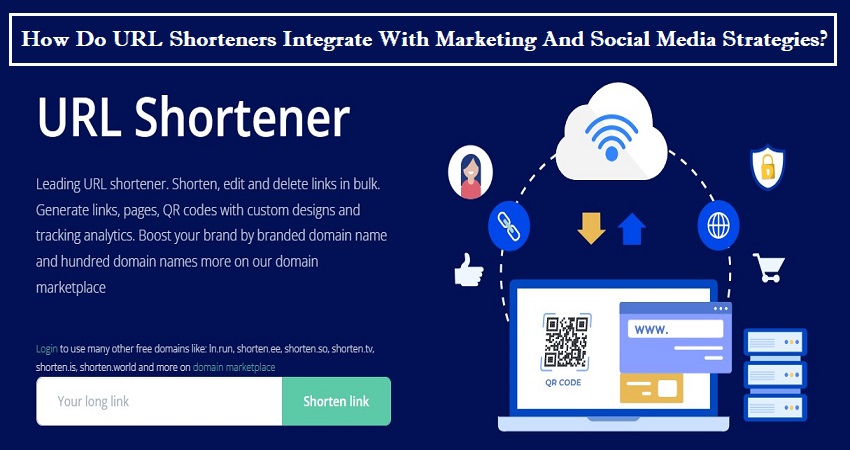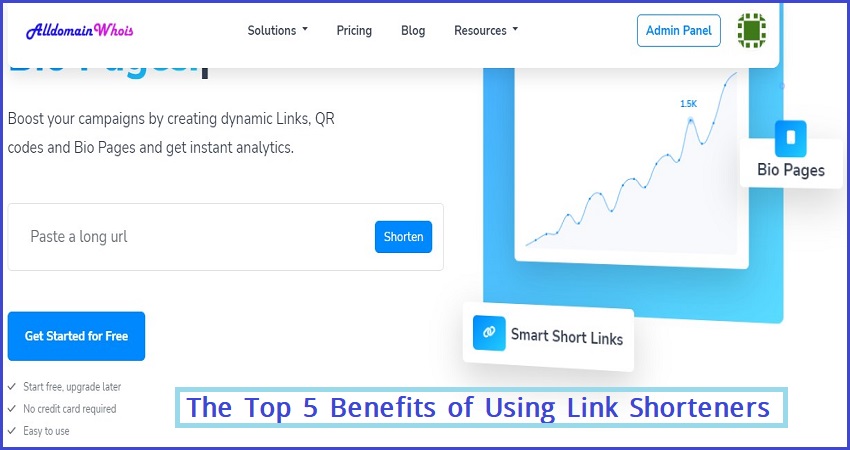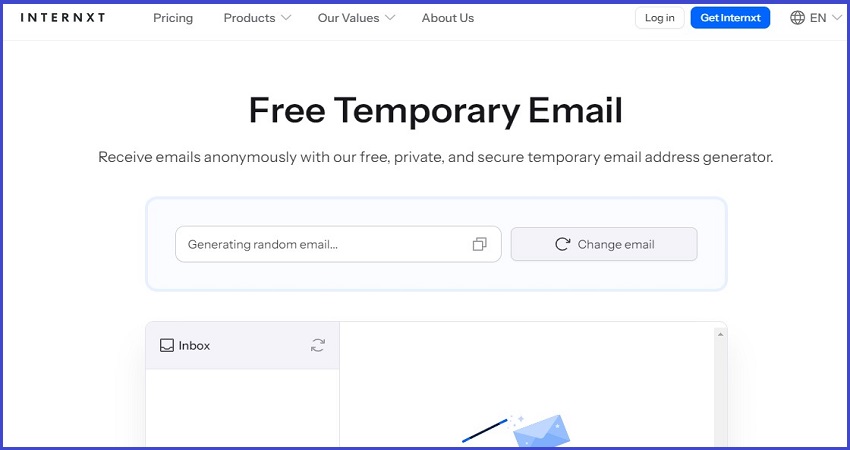
In today’s fast-paced digital world, marketers are constantly looking for ways to optimize their campaigns and improve user engagement. One simple yet powerful tool that plays a vital role in digital marketing strategies is the URL shortener.
URL shorteners allow marketers to transform long, unwieldy links into shorter, more manageable ones. However, their benefits go beyond aesthetics. When used properly, URL shorteners can significantly enhance both marketing and social media strategies, offering features like analytics, branding, and increased engagement.
Why Use URL Shorteners in Marketing?
URL shorteners are more than just tools to make links look cleaner. They provide several advantages in marketing campaigns, which can help drive traffic, increase conversion rates, and strengthen your brand presence. Here’s why URL shorteners are important for marketing strategies:
- Improved User Experience: Long URLs are often cumbersome and difficult to remember. By shortening links, you provide users with an easier-to-read URL, improving their overall experience and making them more likely to click.
- Increased Click-Through Rate (CTR): Shortened URLs can lead to higher CTRs, especially when combined with compelling call-to-actions (CTAs). Clean, concise links look more professional and less suspicious, encouraging users to engage.
- Link Tracking and Analytics: Most URL shorteners offer built-in analytics, enabling marketers to track how many times their links are clicked, where the clicks are coming from, and which channels perform best. These insights are crucial for optimizing future campaigns.
- Social Media Optimization: Social media platforms like Twitter and Instagram limit the number of characters in posts. By using shortened URLs, you save valuable space for your message, hashtags, and other engagement tactics.
- Customization and Branding: Custom short URLs that include your brand name or specific keywords enhance your brand’s visibility and credibility. This also helps with link recall and recognition when users share your content.
Integrating URL Shorteners into Your Social Media Strategy
Social media is one of the most powerful tools for promoting products and services, and integrating URL shorteners into your social media strategy can amplify your results. Here are a few ways to use URL shorteners effectively on social platforms:
1. Shareable and Trackable Links
When you share a shortened link on social media, you can easily track the performance of that link through the analytics provided by most URL shorteners. This means you can measure how well specific content is performing across different platforms and tweak your strategy accordingly.
2. Space Optimization
Platforms like Twitter restrict the number of characters you can use in a single tweet. URL shorteners help you conserve space, allowing you to share more engaging content alongside your links. By shortening URLs, you free up space for hashtags, mentions, and calls to action.
3. Enhanced Mobile Experience
With the rise of mobile usage, it’s essential to offer users a seamless experience. Long URLs can clutter mobile screens, making it harder for users to interact with your content. Shortened URLs ensure your social posts look clean and professional on all devices, making it easier for users to click through.
Best Practices for Using URL Shorteners in Marketing Campaigns
While URL shorteners can be incredibly beneficial, using them effectively requires careful planning. Here are some best practices to keep in mind when incorporating shortened links into your marketing strategy:
1. Use Branded URLs
Branded URLs reinforce your identity and trustworthiness. Custom short links are more memorable and allow your audience to recognize your brand even when shared across multiple platforms.
2. Monitor Performance
Take advantage of the analytics that URL shorteners offer. Regularly track click-through rates, user locations, and traffic sources to gain insights into the effectiveness of your marketing efforts. Use this data to refine future campaigns.
3. Avoid Overuse
While URL shorteners are useful, be cautious not to overuse them in situations where long URLs might be more appropriate, such as in newsletters or certain blog posts. Overusing shortened links can make your content feel spammy.
4. Combine with UTM Parameters
When running campaigns, especially on social media, you can append UTM parameters to your URLs to track specific sources, mediums, or campaigns. Many URL shorteners support the inclusion of UTM tags, allowing you to further refine your data tracking.
Challenges of Using URL Shorteners
While URL shorteners are incredibly useful, they also come with certain challenges that marketers need to consider:
- Trust Issues: Some users may be hesitant to click on shortened URLs due to security concerns. This can be mitigated by using branded shorteners to establish trust.
- Potential for Broken Links: If not managed properly, shortened URLs may stop working if the service provider goes offline. Choose a reliable URL shortener service to avoid such issues.
- Spam Filters: In some cases, shortened URLs may be flagged by spam filters, especially if overused in email marketing campaigns. This is why it’s important to balance your use of shortened links with regular URLs.
Conclusion
URL shorteners are a powerful asset in any marketer’s toolkit. When integrated into your marketing and social media strategies, they not only enhance user experience but also provide valuable insights into campaign performance. However, it's important to use them wisely and strategically. By following best practices like using branded URLs and tracking performance, you can maximize the benefits of URL shorteners and boost your digital marketing efforts.
Frequently Asked Questions (FAQs)
1. What is the main purpose of using a URL shortener?
The main purpose is to create shorter, more manageable links that are easier to share, track, and brand. They also enhance the user experience by providing cleaner, more clickable URLs.
2. Can URL shorteners harm my SEO?
No, as long as the shortener uses proper 301 redirects, which pass link equity to the final destination. Using a trusted URL shortener ensures your SEO remains intact.
3. Are branded URLs better than generic short links?
Yes, branded URLs help increase trust, visibility, and click-through rates. They also make your links more recognizable and memorable.
4. How do URL shorteners track analytics?
Most URL shorteners provide built-in analytics tools that allow you to track clicks, geographic location, and referral sources of those who click on your links.
5. Can I customize shortened URLs?
Yes, many URL shorteners offer the option to customize the shortened link, which can help with branding and easier recall.
6. Do all URL shorteners provide analytics?
No, not all services provide analytics. It’s important to choose a URL shortener that includes this feature if tracking is essential to your marketing strategy.
7. Can URL shorteners be used in email marketing?
Yes, but be cautious as too many shortened URLs can trigger spam filters. It's best to use a combination of shortened and regular links for balance.


